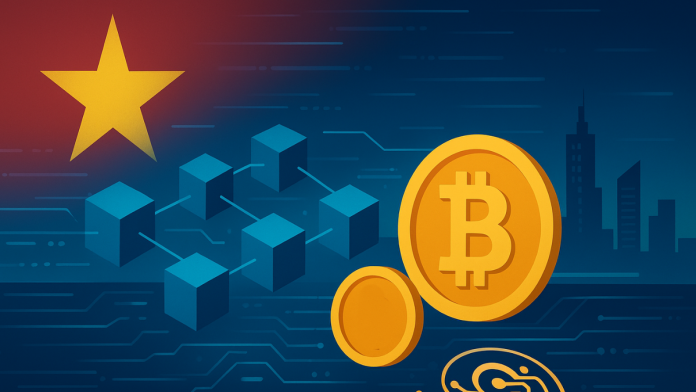Vietnam has passed a new law on the digital technology industry during the 9th session of the 15th National Assembly.
First Law on Digital Technology Industry
This marks a major breakthrough as it is the first dedicated law of its kind in the world. The law officially recognises digital assets, tokenised assets, and cryptocurrencies.
With this move, Vietnam is setting a clear and structured legal framework for businesses that deal with digital infrastructure. For the first time, ownership rights of digital assets are protected by law. This change is seen as vital for businesses, investors, and users who have long faced risks in an unregulated environment.
According to Nguyen Khac Lich, Director of the Department of Digital Technology Industry under the Ministry of Science and Technology, Vietnam has become the first country to enact such a dedicated law. Reports have shown that Vietnam is already one of the fastest-growing markets for digital assets. Around one in five Vietnamese citizens owns cryptocurrencies. Global studies, including those by Chainalysis and Triple-A, have ranked the country among the top three in crypto adoption worldwide.
📉 Trade crackdown gone wrong — Vietnam defies U.S. pressure, deepens ties with China
The new law lays down rules on how digital assets are owned, traded, and secured. It also supports blockchain technology, boosts innovation, and introduces safeguards against fraud and scams. This development is expected to bring confidence to the market and reduce the risks that come from legal gaps.
Building a Safer Digital Economy
Digital assets are more than just virtual coins. They include tokenised versions of real-world assets such as real estate, stocks, art, and even carbon credits. Phan Duc Trung, Chairman of the Vietnam Blockchain and Digital Asset Association and head of 1Matrix, noted that tokenised assets could form a huge part of the global economy in the next decade. Research by the Boston Consulting Group estimates their value could reach nearly 19 trillion USD by 2033.
International comparisons show that more countries are moving toward legal recognition of digital assets. By August 2024, 45 out of 75 countries surveyed by the Atlantic Council had already legalised them. However, only a smaller group had complete rules covering taxes, anti-money laundering measures, consumer protection, and licensing.
FinCEN tracks 40 percent surge in reports of crypto converted to gold for illicit purposes
Vietnam’s move stands out because it is not only recognising digital assets but also putting them under a comprehensive legal structure. Earlier in June 2024, the Prime Minister issued Decision No. 1131/QD-TTg, which listed blockchain, cryptocurrencies, and related technologies as strategic areas for national development.
This legal framework is in line with several long-term policies of the government that focus on science, technology, and innovation. It also matches broader strategies to strengthen the role of the private sector in the economy.
Boost for Domestic Technology Enterprises
For local companies working in blockchain and digital technology, the law is seen as a turning point. It makes it possible for digital assets to be valued, traded, and recorded legally. This means that banks, auditors, regulators, and investors can now take part in the digital asset ecosystem in a safe and transparent way.
Trump Media raises $6.42B to build massive Cronos crypto treasury
Nguyen Phu Dung, member of the Executive Board of the National Data Association and founder of PILA Group, highlighted that with the new law, digital assets will be gradually recognised, valued, and legally traded. Businesses developing tools for digital identity, asset management, and authentication are expected to benefit directly. These companies can now expand their products, join the national data system, and connect more easily with global digital markets.
The law also helps technology firms attract foreign investment. By offering a trusted environment, Vietnam opens the door for more partnerships with international companies and investors. Local businesses such as PILA and 1Matrix have already expressed their plans to build “Make in Vietnam” platforms that strengthen the country’s competitiveness.
The recognition of digital assets also supports innovation across sectors. Tokenisation of assets such as property, commodities, and intellectual property can improve access to capital. It increases liquidity and transparency in transactions, making it easier for both individuals and companies to raise funds.
The new legal backing gives domestic enterprises the confidence to grow, commercialise their technologies, and expand into international markets. Many see this as a golden opportunity for Vietnam’s tech sector to position itself strongly in the global digital economy.


